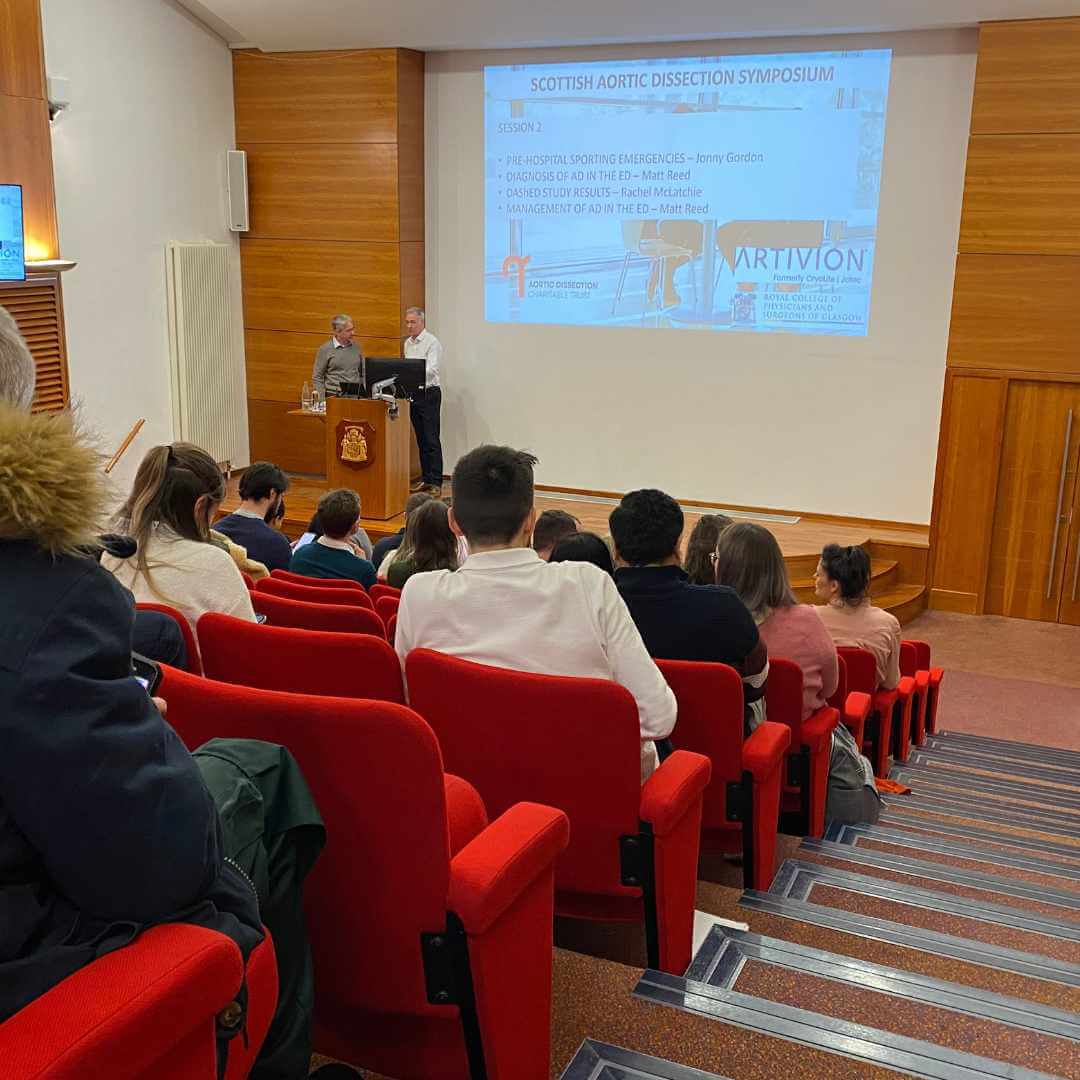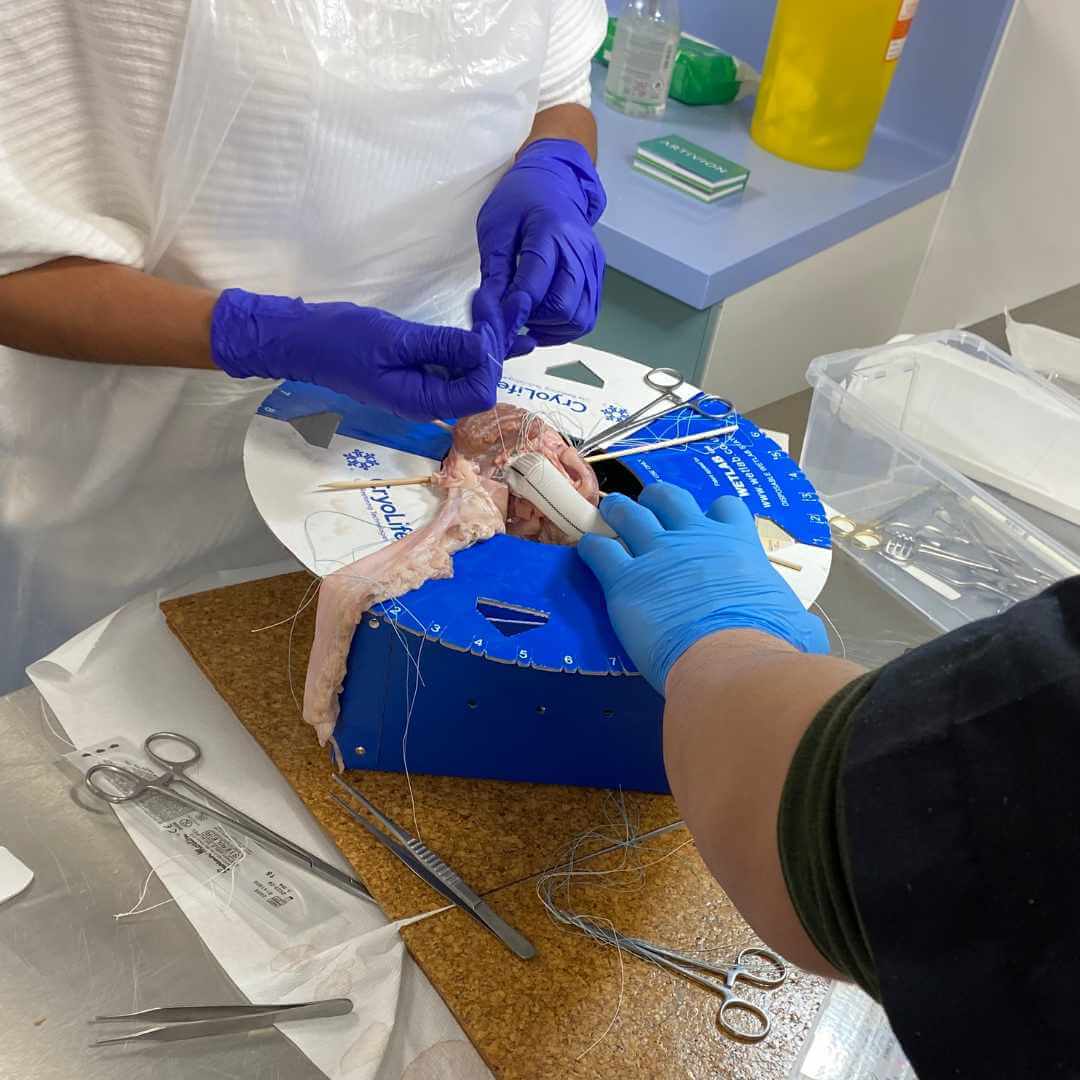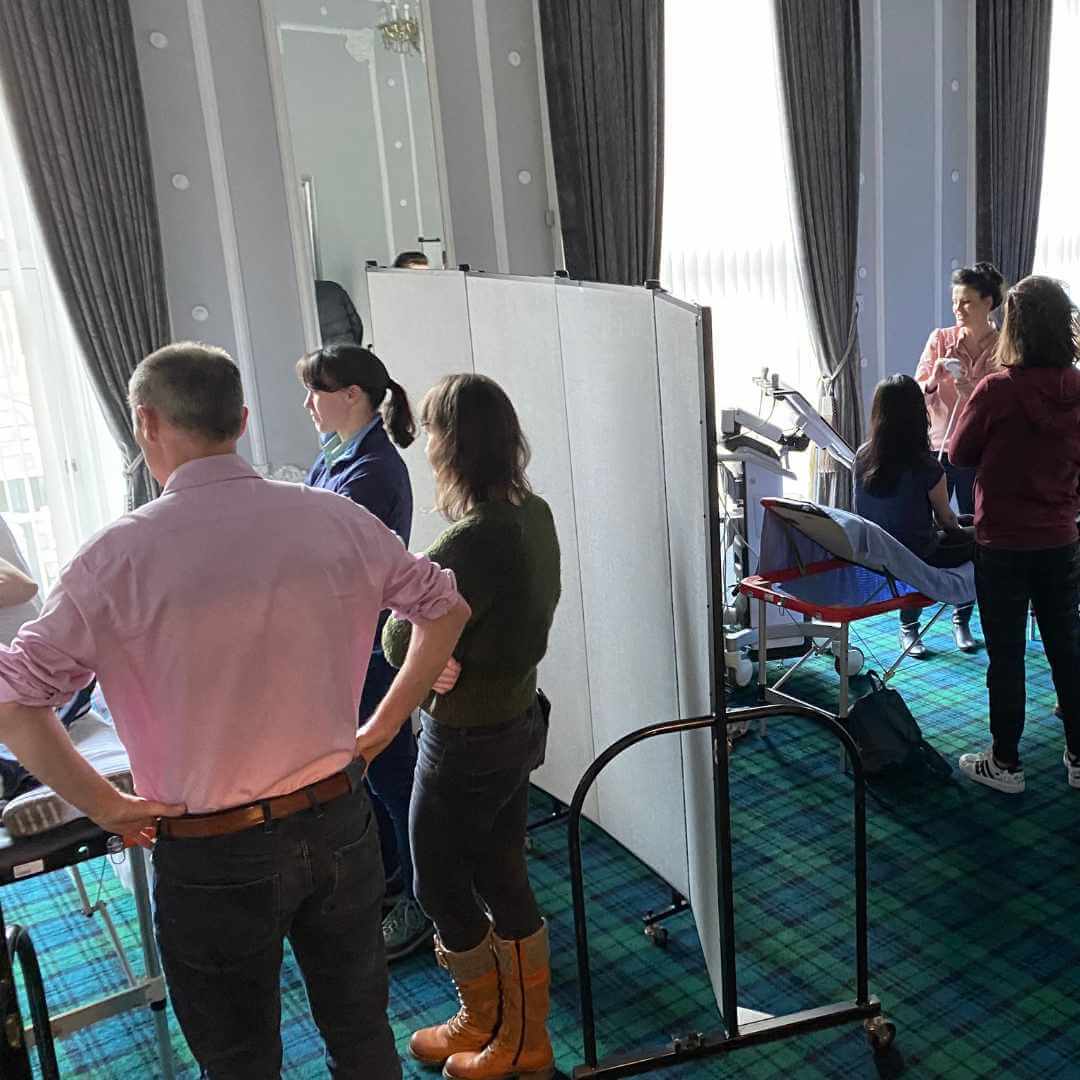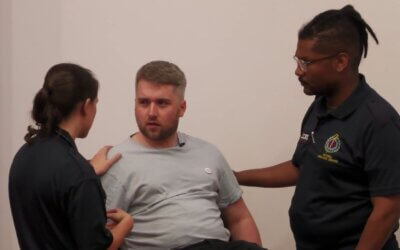The Scottish Aortic Dissection Education symposium, hosted at the Royal College of Physicians and Surgeons in Glasgow, offered an advancing program for regional healthcare professionals focused on aortic dissection.
Foundational Knowledge
The event kicked off with lectures on the pathophysiology of aortic dissection, delivering a foundational understanding of the condition. This was followed by an important presentation from the Emergency Medical Retrieval Service of NHS Scotland, showcasing real-life emergency cases and providing practical insights. In addition, the Management of Pre-Hospital Sporting Emergencies introduced attendees to the unique challenges in sports-related medical emergencies.
Practical Skill Development
- Emergency Case Studies: Here, participants explored diverse emergency medicine scenarios and case reports to sharpen their diagnostic and treatment skills.
- Ascending Aortic Wetlab: This session, mainly for surgical trainees, involved hands-on practice with aortic samples, simulating real surgical interventions.
- Aortic POCUS: Focused on emergency medicine trainees, this workshop taught Point-of-Care Ultrasound including vascular, FAST and advanced techniques for aortic condition diagnosis.



Identifying Common Pitfalls in Diagnosis
A concerning research update discussed at the event was the challenge of accurately diagnosing aortic dissection. Recent data indicates that a quarter of aortic dissection patients are not correctly diagnosed until 24 hours after admission. This delay is critical, considering the immediate intervention required for this condition. Aortic dissection can often be mistaken for other medical conditions, such as acute coronary syndrome or renal colic, further complicating the diagnostic process. Three primary reasons for these misdiagnoses were identified: clinicians often do not include aortic dissection in their differential diagnosis, there’s a tendency to settle too quickly on a different diagnosis, and the complexity added by patients who present without the classic symptoms of aortic dissection. This segment of the programme highlighted the need for heightened awareness and a more open approach in the diagnostic process.
Insights from the DAShED Study
The DAShED study presented at the event provided pivotal insights into the diagnosis of Acute Aortic Syndromes (AAS) in emergency departments. The study highlighted the rarity of AAS among patients presenting with potential symptoms. Despite a significant number of these patients undergoing Computed Tomography Angiography (CTA), the actual incidence of AAS was found to be relatively low. This outcome reinforces the importance of clinical judgement and the use of Clinical Decision Tools (CDTs) in the diagnosis of AAS. However, the study also acknowledged the need for further prospective research, including evaluating the role of D-dimer in this context.
This study is particularly noteworthy for its focus on the undifferentiated population of Emergency Department patients. In this group, Emergency Physicians frequently face the challenge of considering Acute Aortic Syndrome, including aortic dissection – a task that is both complex and critical. Remarkably, this specific patient population has never been studied in such depth before.
Acknowledgements
We continue to host similar events in Scotland. Special thank you to Artivion for sponsoring this event, allowing free attendance. Appreciation is also due to The Royal College of Surgeons of Edinburgh for awarding CPD points, and to The Royal College of Physicians and Surgeons of Glasgow for their hospitality in hosting the event.




